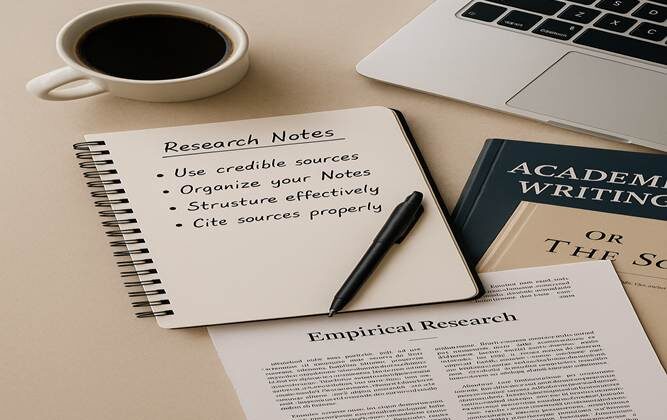
Mastering the Art of Writing and Research: Essential Tips for Success
Mastering the Art of Writing and Research: Essential Tips for Success
Scientific writing is more than just putting words on paper—it’s about clarity, precision, and effective communication. Whether you’re drafting a research paper, crafting a science blog, or writing for an academic audience, strong research and writing skills are essential. Here are some expert tips to elevate your writing game.
1. Start with a Strong Research Foundation
Before you even begin writing, invest time in thorough research. Here’s how:
- Use Credible Sources: Rely on peer-reviewed journals, university websites, and established research papers.
- Organize Your Notes: Keep track of your sources using tools like Zotero or Mendeley.
- Stay Updated: Science evolves rapidly—always check for the latest findings before citing sources.
2. Structure Your Writing Effectively
A well-organized paper or article improves readability. Follow this structure:
- Introduction: Present the research question or topic and provide background information.
- Methodology: Explain how you conducted your research or gathered information.
- Results & Discussion: Share findings and interpret their significance.
- Conclusion: Summarize key insights and suggest future directions for research.
3. Clarity is Key
Scientific writing should be precise and straightforward. To improve clarity:
- Avoid Jargon: Use language that is accessible while maintaining scientific accuracy.
- Be Concise: Eliminate unnecessary words and focus on delivering essential information.
- Use Active Voice: Instead of “The study was conducted by researchers,” write “Researchers conducted the study.”
4. Master Citation and Referencing
Plagiarism is a major concern in academic writing. Ensure proper citation:
- Use the Right Format: APA, MLA, IEEE—follow the style required for your field.
- Cite As You Write: Don’t wait until the end; incorporate citations early to avoid missed references.
- Verify Sources: Always double-check citations for accuracy.
5. Edit, Revise, and Get Feedback
Your first draft is just the beginning. Improve your work through:
- Multiple Drafts: Revise structure, arguments, and clarity.
- Grammar Tools: Use tools like Grammarly to refine your writing.
- Peer Reviews: Ask colleagues or mentors to provide constructive feedback.
Conclusion
Strong writing and research skills can amplify the impact of scientific work. By focusing on research quality, structuring effectively, and writing with clarity, you can ensure your work is both insightful and engaging.